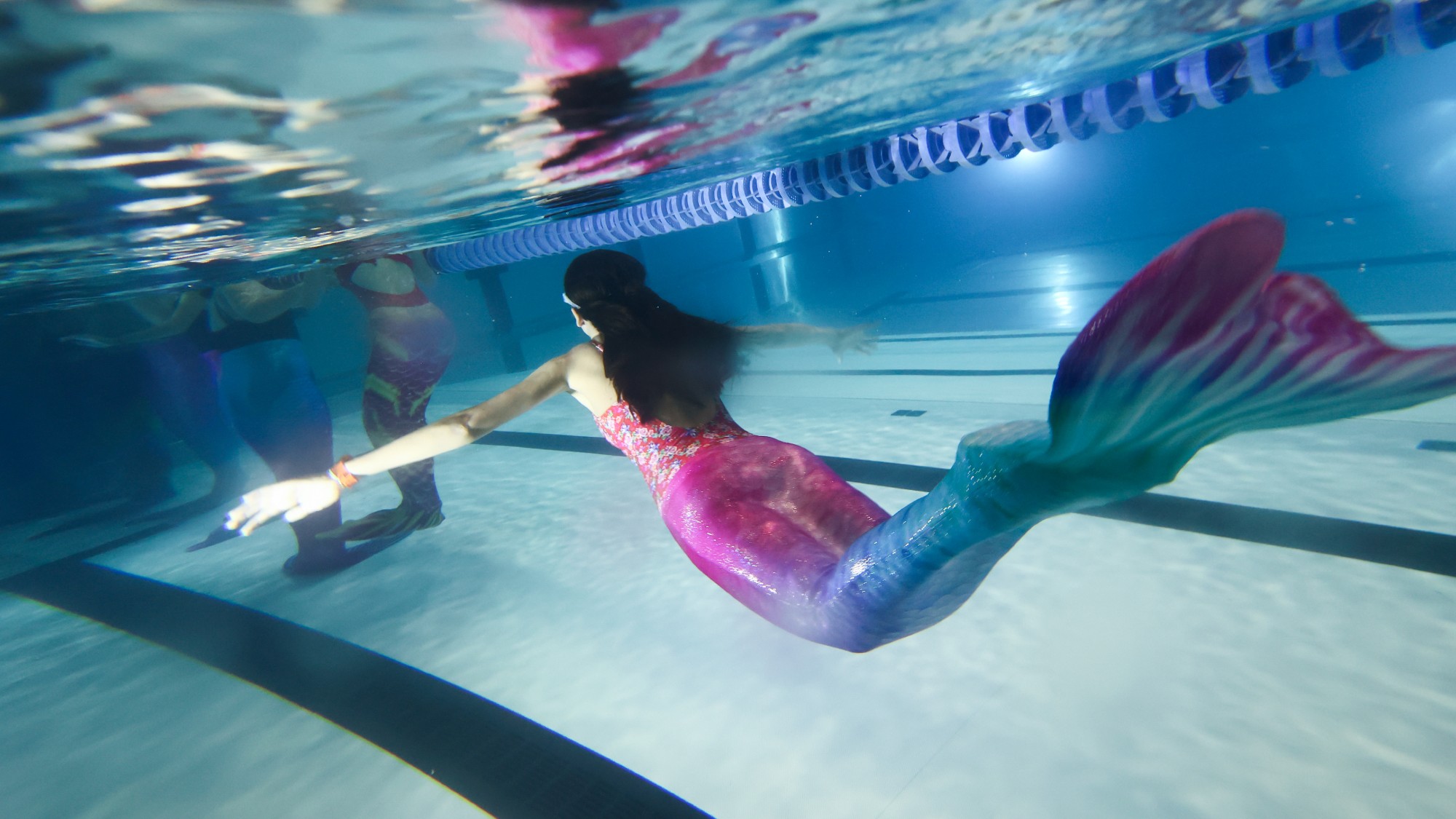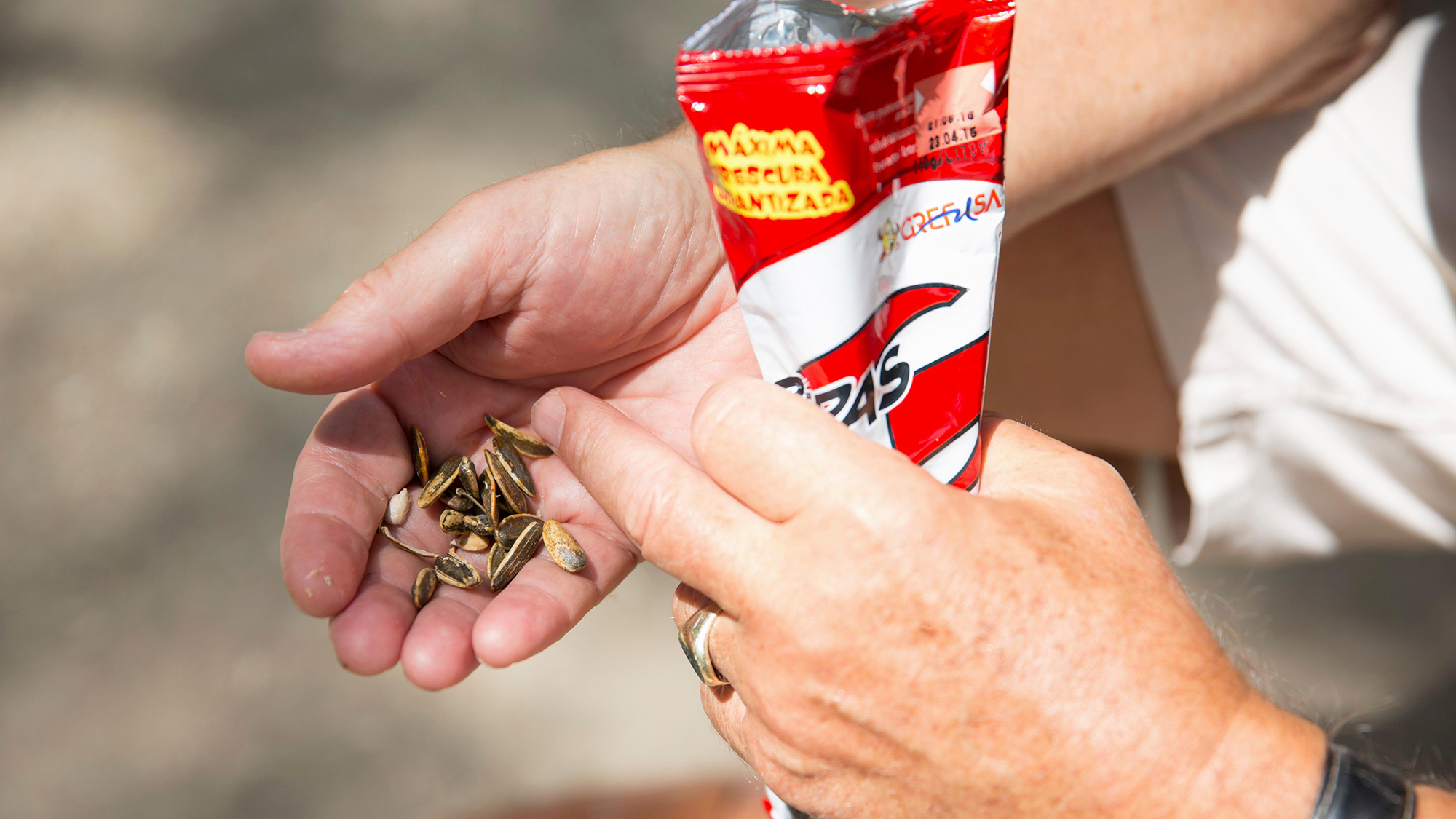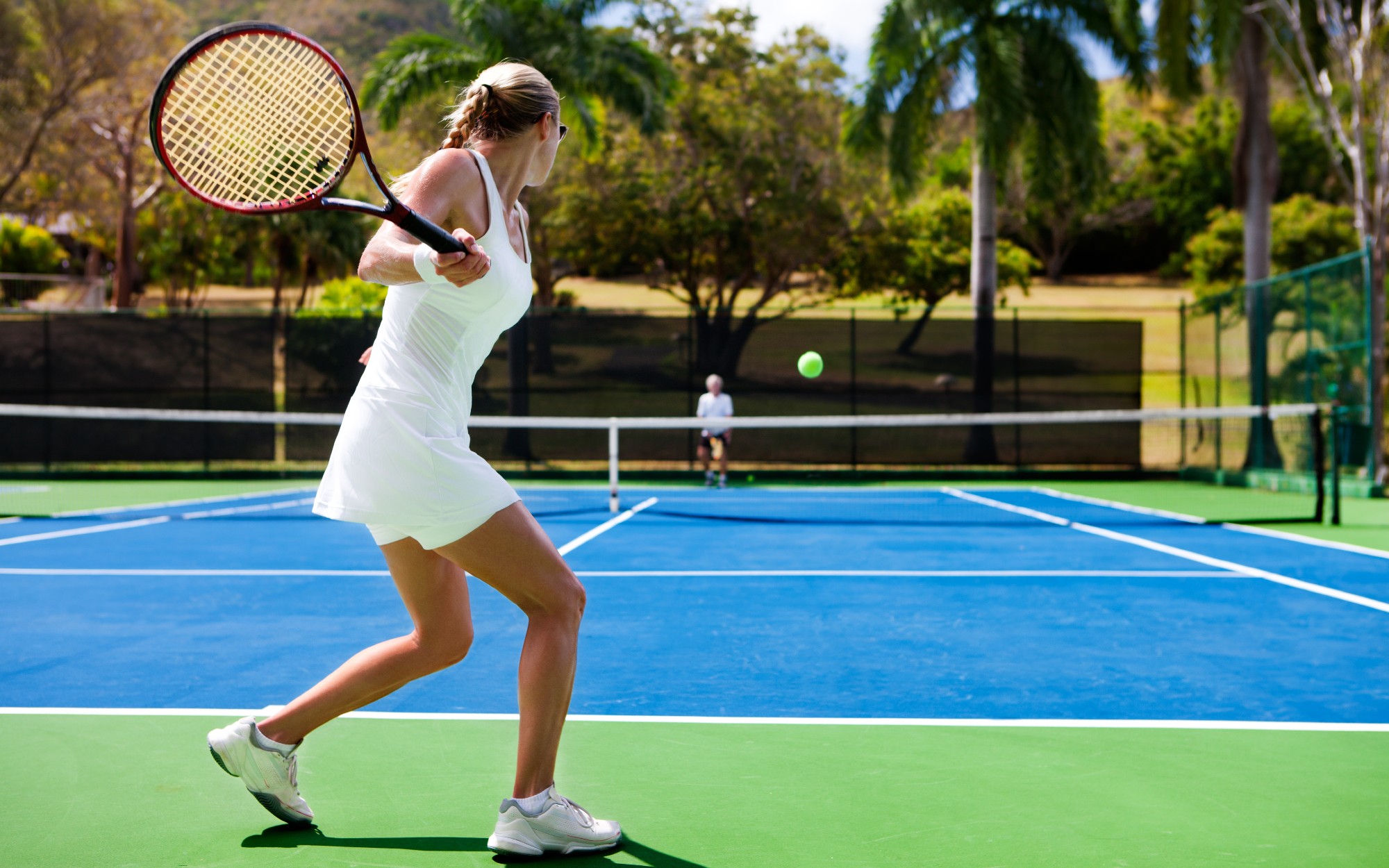Mermaiding: the underwater subculture on the rise
Cosplay meets fitness in an escapist fin-omenon that's making waves around the world

A free daily email with the biggest news stories of the day – and the best features from TheWeek.com
You are now subscribed
Your newsletter sign-up was successful
At the edge of suburban swimming pools and tropical beaches, "mermaiding" enthusiasts are donning mono-fin tails and wiggling towards the water. What began as a novelty at fantasy conventions in the 1980s has now spawned active communities around the world, as well as courses and qualifications, focusing on a tail-propelled dolphin kick and breath-holding techniques.
For the love of pod
Like wild swimming but with added sparkle, mermaiding is a new way to escape life's stresses and channel your free spirit. Taking to the water in multi-coloured mermaid tails and "seashell crowns" offers aficionados a "refuge from the stressors of work and other aspects of everyday life", said The Washington Post. It's about "finding a place where you can let your guard down and actually get in touch with your inner child and play", part-time mermaid Colleen McCartney told the paper. "That's not a space that exists very often."
Some "merfolk" describe their "pods" as similar to the close-knit circles of drag-ball culture, and the online mermaiding scene has a lot of overlap with fantasy, LGBT and body positivity communities, said i-D magazine. Every swim is documented with group "shellfies", and professional mermaids stage elaborate underwater photo shoots with rainbow wigs and glittering costumes.
The Week
Escape your echo chamber. Get the facts behind the news, plus analysis from multiple perspectives.

Sign up for The Week's Free Newsletters
From our morning news briefing to a weekly Good News Newsletter, get the best of The Week delivered directly to your inbox.
From our morning news briefing to a weekly Good News Newsletter, get the best of The Week delivered directly to your inbox.
Kaila Yu, a certified free diver and scuba diver, was sceptical before she took lessons at the Four Seasons hotel in Bora Bora. "I'd first encountered professional mermaiding on my Instagram feed. I thought it was performative, pretentious, and girly," she said in Business Insider. Yu was soon won over by the challenge and the joy of feeling like a "real-life mermaid", swimming among schools of shimmering tropical fish, "each flutter" of pelvis and hips "awakening my feminine energy".
'Aquatic joy'
Margaux Caillier, a French artistic swimmer who competed in the 2024 Paris Olympics, offers mermaiding lessons in the sea near Biarritz. "In the swimming pool, what I hate" is doing length after length, she told Olympics.com. Mermaiding is "like a dream", by contrast. "It's accessible to everyone" because "there is no synochronisation between arms and legs. It's just the body going with the water, that's all." Caillier's lessons are increasingly in demand at bridal showers and, on at least one occasion, a stag party.
Mermaiding is not an official Olympic sport – yet – but the Merlympics promise "less pressure, more aquatic joy". Categories at this year's event in Wolfsburg, Germany, included the 50m Speed Challenge, Underwater Rescue Drill, Best Underwater Picture (which is all about form, pose and bubble control) and Performance, a creative choreography category.
Flitting through the sea doesn't come cheap, however: custom silicone tails "usually weigh about 10kg to 15kg and cost upward of £1,500", said i-D magazine. Fabric and neoprene are cheaper but make swimming more difficult. And not every swimming pool welcomes mermaid tails.
A free daily email with the biggest news stories of the day – and the best features from TheWeek.com
-
 The ‘ravenous’ demand for Cornish minerals
The ‘ravenous’ demand for Cornish mineralsUnder the Radar Growing need for critical minerals to power tech has intensified ‘appetite’ for lithium, which could be a ‘huge boon’ for local economy
-
 Why are election experts taking Trump’s midterm threats seriously?
Why are election experts taking Trump’s midterm threats seriously?IN THE SPOTLIGHT As the president muses about polling place deployments and a centralized electoral system aimed at one-party control, lawmakers are taking this administration at its word
-
 ‘Restaurateurs have become millionaires’
‘Restaurateurs have become millionaires’Instant Opinion Opinion, comment and editorials of the day
-
 Marty Supreme: Timothée Chalamet is ‘captivating’ as ‘ping-pong prodigy’
Marty Supreme: Timothée Chalamet is ‘captivating’ as ‘ping-pong prodigy’The Week Recommends Josh Safdie’s ‘electrifying’ tale about a table tennis hustler is hotly tipped for Oscars glory
-
 Book reviews: ‘Gertrude Stein: An Afterlife’ and ‘Make Me Commissioner: I Know What’s Wrong With Baseball and How to Fix It’
Book reviews: ‘Gertrude Stein: An Afterlife’ and ‘Make Me Commissioner: I Know What’s Wrong With Baseball and How to Fix It’Feature Gertrude Stein’s untold story and Jane Leavy’s playbook on how to save baseball
-
 8 hotels with ace tennis courts
8 hotels with ace tennis courtsThe Week Recommends Bring your A game
-
 Spain's love of sunflower seeds is wrecking its football stadiums
Spain's love of sunflower seeds is wrecking its football stadiumsUnder the Radar One club controversially bans 'national vice' as discarded 'pipas' shells block drains and erode concrete
-
 The UK's best golf hotels
The UK's best golf hotelsThe Week Recommends These are the country's top spots for teeing off – with standout accommodation to boot
-
 Robert McCrum shares his favourite books on sport
Robert McCrum shares his favourite books on sportThe Week Recommends Writer and editor picks works by Nick Hornby, David Goldblatt and others
-
 Coeur d'Alene, Idaho, is a town for all seasons
Coeur d'Alene, Idaho, is a town for all seasonsThe Week Recommends Fall, winter, spring and summer all usher in new activities
-
 Get physical at these 8 hotels that feature 8 different sports
Get physical at these 8 hotels that feature 8 different sportsThe Week Recommends After you check in, it's game time